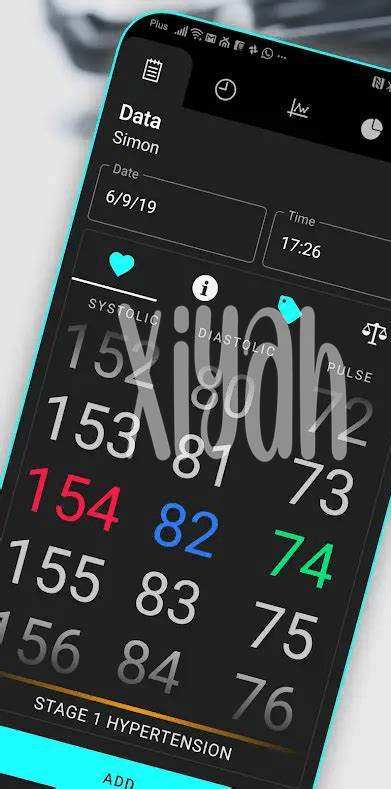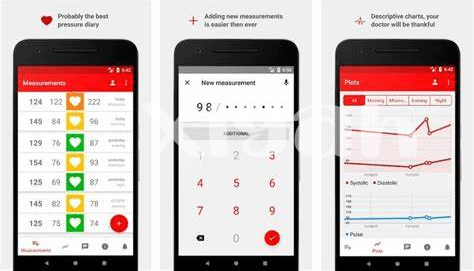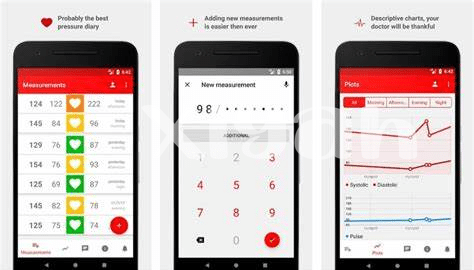- Understanding the Risks 😧
- Lifestyle Changes and Dietary Management 🥦
- Importance of Regular Monitoring 📊
- Stress Management and Relaxation Techniques 🧘
- Benefits of Physical Activity 🏃
- Utilizing Mobile Apps for Tracking and Support 📱
Table of Contents
ToggleUnderstanding the Risks 😧
High blood pressure, also known as hypertension, affects millions of people globally and poses significant health risks if left unmanaged 😧. Hypertension can lead to severe complications such as heart disease, stroke, and kidney problems. Understanding the risks associated with high blood pressure is crucial for individuals to take proactive steps in managing their health. By recognizing the potential consequences, individuals can be motivated to make essential lifestyle changes and seek appropriate medical interventions.
| Risks of High Blood Pressure |
|---|
| Heart disease |
| Stroke |
| Kidney problems |
Lifestyle Changes and Dietary Management 🥦
Lifestyle Changes and Dietary Management are crucial components in managing high blood pressure. 🥦 Making healthy choices and adjustments to one’s diet and daily habits can have a significant impact on overall blood pressure levels. Adopting a diet rich in fruits, vegetables, and whole grains, while minimizing the intake of processed and high-sodium foods, plays a key role in promoting heart health. Additionally, reducing alcohol consumption and incorporating techniques to manage stress can also contribute to better blood pressure management.
Furthermore, maintaining a healthy weight and staying physically active are vital in controlling high blood pressure. 🏃 Regular exercise not only helps in weight management but also contributes to improved cardiovascular health. By integrating these lifestyle changes and dietary modifications, individuals can enhance their overall well-being and effectively manage high blood pressure. Moreover, utilizing mobile apps for tracking and support can provide additional tools and resources to facilitate and maintain these important lifestyle adjustments.
Importance of Regular Monitoring 📊
Regular monitoring of blood pressure is crucial for effective management of hypertension. By keeping track of blood pressure readings, individuals can gain valuable insights into their condition, enabling them to make informed decisions about their health. Monitoring blood pressure levels regularly aids in identifying any fluctuations or abnormalities, allowing for prompt intervention and appropriate adjustments to treatment plans. It also empowers individuals to take an active role in their health, fostering a sense of control and accountability in managing their condition.
Furthermore, regular monitoring provides healthcare professionals with essential data to assess the effectiveness of treatment strategies and make necessary modifications. Through consistent monitoring, individuals can better understand how their lifestyle choices and medication regimen impact their blood pressure, ultimately contributing to improved overall management and well-being. Embracing regular blood pressure monitoring as a routine practice is a proactive step towards achieving long-term health and mitigating the risks associated with hypertension.
Stress Management and Relaxation Techniques 🧘
Stress management and relaxation techniques are vital components of high blood pressure management. Incorporating mindfulness meditation, deep breathing exercises, and yoga into your daily routine can effectively reduce stress levels and promote overall well-being. Finding moments of calm and practicing these techniques regularly can help lower blood pressure and prevent potential health complications. Engaging in activities that promote relaxation, such as reading, spending time in nature, or listening to soothing music, can also contribute to stress reduction. Additionally, prioritizing quality sleep and establishing boundaries to manage daily stressors are crucial for maintaining a healthy lifestyle. Embracing these relaxation techniques not only aids in managing high blood pressure but also fosters a positive mindset and improved mental health.
To further enhance your journey in managing high blood pressure, consider exploring the best camera app for Android phones by visiting this link.
Benefits of Physical Activity 🏃
Regular physical activity offers a multitude of benefits to individuals managing high blood pressure. Engaging in exercise can help improve cardiovascular health, enhance blood circulation, and aid in weight management. Additionally, physical activity stimulates the release of endorphins, the body’s natural mood elevators, thus contributing to stress reduction and an overall sense of well-being. Moreover, consistent exercise can also lead to improved sleep patterns, leading to better overall health. From aerobic exercises to strength training and flexibility exercises, a well-rounded physical activity regimen can significantly contribute to managing high blood pressure effectively.
Utilizing Mobile Apps for Tracking and Support 📱
Mobile apps are revolutionizing the way individuals manage their high blood pressure by providing tools for tracking and support. These apps offer features such as blood pressure monitoring, medication reminders, diet and exercise tracking, and even stress reduction techniques. They empower users to take an active role in their health management by providing easy access to personalized data and insights. Additionally, many apps include educational resources and community support, fostering a sense of accountability and encouragement. The convenience of having these resources readily available on a mobile device makes it easier for individuals to stay on top of their health goals and communicate effectively with their healthcare providers. With the help of these apps, individuals can gain better understanding and control of their condition, ultimately leading to improved overall well-being.




